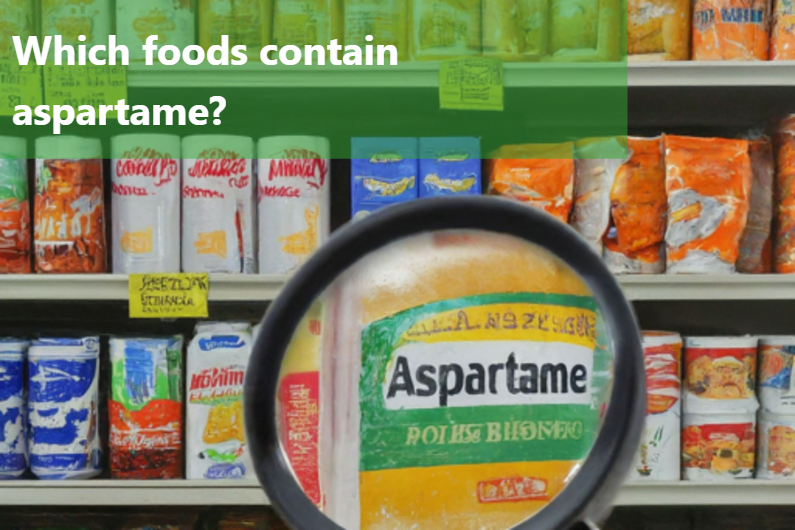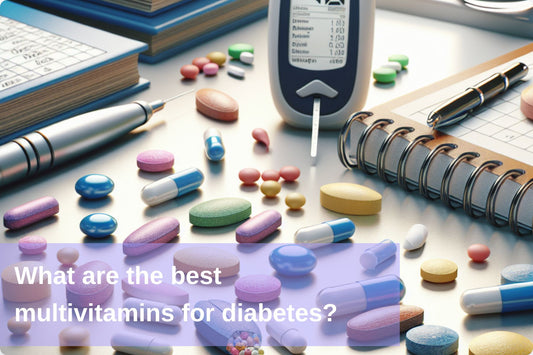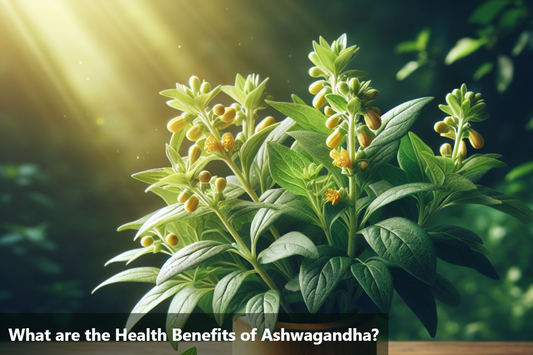Aspartame is a popular artificial sweetener found in lots of food. It is much sweeter than sugar, so only a little is needed. It is often used in diet sodas, sugar-free gum, and certain yogurts to make them sweet without adding lots of calories. But some people worry that aspartame might cause headaches and dizziness. It's important to pay attention to aspartame in different foods, especially if you might be sensitive to it.
Common Foods Containing Aspartame
Diet sodas: From diet sodas to sugar-free gum and certain types of yogurt, aspartame can be found in a variety of popular foods and beverages. One common source of aspartame is diet sodas. These carbonated beverages are often advertised as a guilt-free alternative to regular sodas due to their reduced or zero sugar content.
Sugar-free gum: Additionally, sugar-free gum is another product that frequently contains aspartame. Individuals looking to freshen their breath or satisfy a craving for something sweet without consuming sugar may opt for sugar-free gum. However, it’s essential to check the label for aspartame to make an informed decision.
Certain types of yogurt: Certain types of yogurt also make the list of foods containing aspartame. While yogurt is generally perceived as a healthy snack or breakfast option, some varieties may be sweetened with aspartame to cater to those seeking low-calorie alternatives.
Cereals and snacks: Aspartame can also be found in certain cereals and snacks labeled as "sugar-free" or "low-calorie." It is important to read product labels to identify the presence of aspartame for those monitoring their intake of this sweetener.
Being conscious of the prevalence of aspartame in these common foods and beverages is crucial for making informed choices about consumption. By checking product labels and understanding which items are likely to contain aspartame, individuals can navigate their dietary decisions more effectively.
Identifying Aspartame on Food Labels
When it comes to identifying aspartame on food labels, it's essential to have a sharp eye for detail. The following tips can help you navigate through ingredient labels and recognize alternative names for aspartame.
Scan the Ingredient List: Start by thoroughly scanning the ingredient list of the product. Look for specific terms such as "aspartame" or its common variations like "APM" or "NutraSweet."
Look for Other Names: Be aware of alternative names that may indicate the presence of aspartame, such as "E951" in products from European countries or "951" in products from other regions.
Be Wary of Sugar-Free Claims: Products labeled as "sugar-free" or "low-calorie" often contain aspartame. In such cases, examining the ingredient list becomes crucial to uncover its presence.
Research Specific Product Categories: Certain food categories like diet sodas, sugar-free gum, and low-calorie snacks are notorious for aspartame inclusion. Familiarize yourself with these categories to make informed choices.
Stay Informed: Keeping abreast of updated information and developments about aspartame and its usage can aid in being more discerning while shopping for food products. By applying these strategies, you can improve your ability to identify aspartame on food labels and make informed decisions about the products you consume.
Health Impact and Controversy Surrounding Aspartame
Aspartame has been a hot topic in the health world because people are concerned about how it might affect our health. Many health groups are worried about people using aspartame and how it might affect their health. Scientists have researched to study the arguments and claims about this artificial sweetener.
Some scientific studies suggest that aspartame might have effects on our health. People say that aspartame could cause headaches, dizziness, and even more serious health problems. While this is argued among scientists, it has caused a lot of debate among health groups and people who use aspartame.
Some experts say that aspartame is safe to use if you don't have too much, but others are worried about its long-term effects, especially for people with certain health problems. This argument has led to more discussion about using aspartame in different kinds of food and drinks.
People need to keep up with the latest research and advice from health groups about using aspartame. As the debate goes on, knowing about the possible health effects of aspartame and getting information from good sources can help people make good choices about what they eat.
Alternative Sweeteners to Aspartame Found in Food
Some common alternative sweeteners to aspartame found in food include:
Sucralose
Stevia
Saccharin
Monk fruit extract
Erythritol
Xylitol
Agave nectar
These sweeteners are often used as substitutes for aspartame in various products, offering different levels of sweetness and suitable for different dietary preferences.
To conclude:
As we wrap up our discussion on aspartame and its impact on health, it's important to consider the key points. Aspartame is widely used as a low-calorie sweetener in many diet products, but its presence in common foods like diet sodas, sugar-free gum, and certain yogurts raises concerns about its potential health effects. Consumers must identify aspartame on food labels and understand the alternative names used for it. Debates and research around aspartame have led to controversy, with different health organizations offering varying perspectives. In conclusion, consumers should be mindful of their aspartame consumption and make informed choices based on individual health concerns.
This Blog post is an initiative by DiabeSmart, to provide accurate and Nutritionist / Doctor approved information related to Diabetes. DiabeSmart is India's first Food brand designed specifically for Diabetics, that has been clinically tested on Diabetics and Pre-Diabetics to deliver 55% - 70% lower Sugar spikes. DiabeSmart is part of Lo! Foods - India's leading brand for Everyday Functional Health foods.









